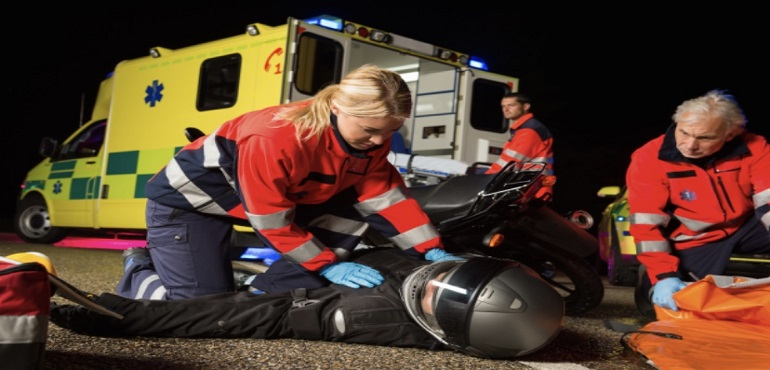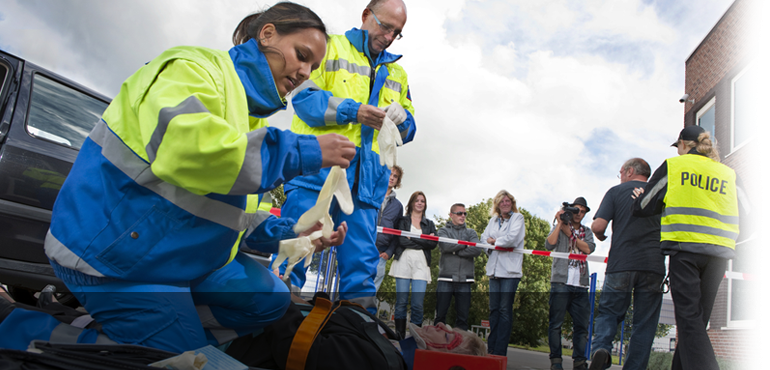| Toll Free : 1844 495 7333(injury hotline- new cases only) | |
| Text a Personal Injury Lawyer 24/7 and get instant help.TM (416 931 5015) | |
| Head Office : 905 495 7333 |
Personal Injury Cases: Herniated Disc, Slipped Disc and Pinched Nerves – The Legal Aspects
October 21, 2015If you or a loved one has been in an accident or suffered injury because of the fault/negligence of others, you need immediate medical attention. Once this has been taken care of, the other crucial aspect is to retain the services of an accident injury lawyer to file claim for the medical and other expenses that you had to incur as a result of this.
Some of the serious injuries that result from accidents are herniated or slipped discs and pinched nerves. Each one of these can cause severe pain and discomfort, different types of mobility problems and chronic issues with reflexes and sensation. Though the terms may be used interchangeably by health-care professionals, it is useful to know the precise definitions of these terms.
Herniated/slipped disc: often goes undiagnosed even by experienced medical professionals. The back is a complicated structure of muscles, bones, nerves and blood vessels. Anything that affects one part has a ripple effect along the back and other parts of the body. The human back-bone or vertebral column consists of 26 bones which are protected by discs which act as shock-absorbers to cushion the detrimental effects of movement and daily living activities. The discs have two parts- a softer gelatinous inner layer and a tough outer ring.
Any injury or accident to the back can result in the discs getting damaged and the inner layer protruding through to the outer, known as herniation. If the protrusion causes pressure on any of the spinal nerves, numbness, pain or weakness results. If the herniation is in the lower back, the patient feels the pain in the buttocks region, thighs or calf, sometimes even in the foot. However, if herniation is in the upper back, the pain travels along the shoulders and arms.
Shooting pain may accompany sneezing, coughing or sudden movements like twisting and turning. Numbness in certain parts of the body or tingling sensations are other symptoms which most people tend to ignore. Muscle weakness is another characteristic feature of herniation, with the patient being unable to lift or hold items. They may also find it difficult to walk smoothly without stumbling.
Pinched Nerve: is caused by the compression of a nerve in the spine being pressed between two discs. It results from torn tendons or cartilage, arthritis or severe injuries caused by accidents. The symptoms include severe shoulder and neck pain, weakness and “pins and needles” tingling in the arm and shoulder.
Causes: Disc herniation and pinched nerves are a common age-related phenomenon. However, a traumatic event like a blow to the back or a fall can cause it too. Hence, following an accident, if you feel any of the above mentioned symptoms, you need to consult a doctor immediately.
Complications: If left untreated, they can lead to worsening symptoms like severe pain, numbness and weakness that begin to affect your daily functioning. Bladder and bowel dysfunction may cause incontinence or difficulty in urination or having a bowel movement. Loss of sensation in the saddle area: around the buttocks and thighs is another complication.
Diagnosis: Your doctor may arrive at a diagnosis based on:
- Physical examination
- Nerve Function examination
- Muscle strength examination
- Pain reports of patient
- Pain observed during palpation/motion
- Review of specific symptoms
- Review of medical history especially if there have been injuries suffered in accidents
- Diagnostic tests like X-ray, CT scans, MRI scans, discogram etc.
Treatment
Treatments are based on level of discomfort and extent of injury.
Conservative treatments: A regular exercise program in collaboration with a physiotherapist to stretch and strengthen the back muscles and surrounding areas. Over-the-counter medications, steroid injections for pinched nerves, rest and avoidance of heavy lifting, exertion and strain to the back are recommended for mild cases which have been diagnosed early.
Pain management Medications: If OTC medications are ineffective, stronger ones are prescribed, including muscle relaxants, narcotics to relieve muscle pain and nerve pain medications like duloxetine.
Surgery: If the symptoms last beyond six weeks and they affect your daily functioning, surgery may be recommended.
How We Can Help
Whether it was a car accident or a slip and fall injury that caused your herniated/slipped disc or pinched nerve, if the mishap was caused by the negligence of another person, our personal injury lawyers can assist you with filing a claim for damages and also ensure that your rights are safeguarded.
Our car accident lawyers can put together a strong case based on all the available medical and forensic evidence so that you receive maximum compensation.
If you, your family or a friend has been injured in an accident, please feel free to speak to one of our injury lawyers for a free consultation about how we are able to assist in making a personal injury claim. We consult in all cities across Ontario with a no win no fee guarantee. Our personal injury lawyers have helped victims secure millions of dollars in personal injury cases. Call us Toll Free On our 24/7 Injury Hotline: 1 – 844 495 7333.
Personal Injury Cases: Herniated Disc, Slipped Disc and Pinched Nerves – The Legal Aspects
October 21, 2015If you or a loved one has been in an accident or suffered injury because of the fault/negligence of others, you need immediate medical attention. Once this has been taken care of, the other crucial aspect is to retain the services of an accident injury lawyer to file claim for the medical and other expenses that you had to incur as a result of this.
Some of the serious injuries that result from accidents are herniated or slipped discs and pinched nerves. Each one of these can cause severe pain and discomfort, different types of mobility problems and chronic issues with reflexes and sensation. Though the terms may be used interchangeably by health-care professionals, it is useful to know the precise definitions of these terms.
Herniated/slipped disc: often goes undiagnosed even by experienced medical professionals. The back is a complicated structure of muscles, bones, nerves and blood vessels. Anything that affects one part has a ripple effect along the back and other parts of the body. The human back-bone or vertebral column consists of 26 bones which are protected by discs which act as shock-absorbers to cushion the detrimental effects of movement and daily living activities. The discs have two parts- a softer gelatinous inner layer and a tough outer ring.
Any injury or accident to the back can result in the discs getting damaged and the inner layer protruding through to the outer, known as herniation. If the protrusion causes pressure on any of the spinal nerves, numbness, pain or weakness results. If the herniation is in the lower back, the patient feels the pain in the buttocks region, thighs or calf, sometimes even in the foot. However, if herniation is in the upper back, the pain travels along the shoulders and arms.
Shooting pain may accompany sneezing, coughing or sudden movements like twisting and turning. Numbness in certain parts of the body or tingling sensations are other symptoms which most people tend to ignore. Muscle weakness is another characteristic feature of herniation, with the patient being unable to lift or hold items. They may also find it difficult to walk smoothly without stumbling.
Pinched Nerve: is caused by the compression of a nerve in the spine being pressed between two discs. It results from torn tendons or cartilage, arthritis or severe injuries caused by accidents. The symptoms include severe shoulder and neck pain, weakness and “pins and needles” tingling in the arm and shoulder.
Causes: Disc herniation and pinched nerves are a common age-related phenomenon. However, a traumatic event like a blow to the back or a fall can cause it too. Hence, following an accident, if you feel any of the above mentioned symptoms, you need to consult a doctor immediately.
Complications: If left untreated, they can lead to worsening symptoms like severe pain, numbness and weakness that begin to affect your daily functioning. Bladder and bowel dysfunction may cause incontinence or difficulty in urination or having a bowel movement. Loss of sensation in the saddle area: around the buttocks and thighs is another complication.
Diagnosis: Your doctor may arrive at a diagnosis based on:
- Physical examination
- Nerve Function examination
- Muscle strength examination
- Pain reports of patient
- Pain observed during palpation/motion
- Review of specific symptoms
- Review of medical history especially if there have been injuries suffered in accidents
- Diagnostic tests like X-ray, CT scans, MRI scans, discogram etc.
Treatment
Treatments are based on level of discomfort and extent of injury.
Conservative treatments: A regular exercise program in collaboration with a physiotherapist to stretch and strengthen the back muscles and surrounding areas. Over-the-counter medications, steroid injections for pinched nerves, rest and avoidance of heavy lifting, exertion and strain to the back are recommended for mild cases which have been diagnosed early.
Pain management Medications: If OTC medications are ineffective, stronger ones are prescribed, including muscle relaxants, narcotics to relieve muscle pain and nerve pain medications like duloxetine.
Surgery: If the symptoms last beyond six weeks and they affect your daily functioning, surgery may be recommended.
How We Can Help
Whether it was a car accident or a slip and fall injury that caused your herniated/slipped disc or pinched nerve, if the mishap was caused by the negligence of another person, our personal injury lawyers can assist you with filing a claim for damages and also ensure that your rights are safeguarded.
Our car accident lawyers can put together a strong case based on all the available medical and forensic evidence so that you receive maximum compensation.
If you, your family or a friend has been injured in an accident, please feel free to speak to one of our injury lawyers for a free consultation about how we are able to assist in making a personal injury claim. We consult in all cities across Ontario with a no win no fee guarantee. Our personal injury lawyers have helped victims secure millions of dollars in personal injury cases. Call us Toll Free On our 24/7 Injury Hotline: 1 – 844 495 7333.








